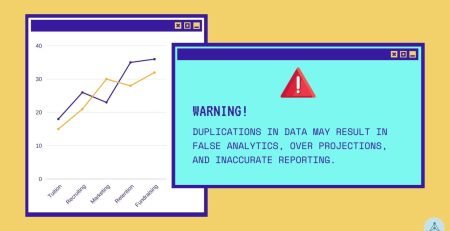College Admissions Fraud: The Deeper Truth
The more competitive your college is, the more will be the number of applications you receive each academic year, and the more challenging it will be for you to keep a check on the authenticity of each application. As tedious as it may sound, every college must have a verification system in place to ensure that the only applications they process are filled in by real students with real details. According to The New York Times, more than 60,000 fake applications were submitted to the Student Aid Scheme in California in 2021, which shows just how much college application fraud is common.
One of the most effective ways colleges can steer clear of college admission fraud is to have robust verification systems in place to filter out any fake or unauthentic college applications in the initial shortlisting phase. But what’s more important is understanding why students engage in fraudulent activities at such an early stage.
This blog will help you understand the deeper truth behind college admissions fraud, followed by how colleges can prevent these frauds from happening in the first place.
Why Are Students Committing Admission Fraud?
Every action a human take has some background. Nobody wakes up and plunges into anything good or bad. Everyone acts based on their thought or intentions. While there’s absolutely no justification for submitting fake college applications, it would help to understand the student psyche.
Some possible reasons students might think submitting fake college applications is their best bet.
Peer Pressure
Have you ever asked someone which college they are going to? Well, it may sound like a very harmless and casual question to you, but you’ve got no clue about the effect of this question on the student. Not all students have the same aptitude, not all students aspire to college right after graduating from high school, and not all want to attend colleges their parents want them to attend. But they have to follow the path laid out for them nonetheless because if they don’t get into a good college, what will their family and friends think about them? Peer pressure is real and is often the reason why students go astray.
Since they don’t have it in their heart to apply to college, they tend to take shortcuts, and this is where they turn to various online tools to fill out their application forms. Many students lie in their college applications because they’re too desperate to get in. Besides, filling out college applications can take a lot of time, and many students feel like they could be doing something they ‘like’ in that time, so why waste it on filling out the application themselves?
Culture Differences
International students are more likely to be involved in college admission fraud. A major reason international students might do something like this is the huge cultural difference. Apart from cultural differences, there’s also a difference in teaching methodologies and modes of assessment. Students applying for colleges outside their countries aren’t really confident about competing with native students, and they sometimes lie about facts or opt for fraudulent tools to help them write their college applications.
Access to More Information Than Ever
We live in a ‘CTRL+C and CTRL+V’ era where students don’t want to work hard on things that can be done through shortcuts. The information age has made information more readily available than ever. There was a time when students had to work really hard to write college applications that would stand out. But today, with so much information available on everything, their exposure to social media, and the vastness of their social networks, students often copy rather than work on creating something unique and creative.
Insufficient Moral Development
Undergraduate students are still young and not morally as strong as older individuals. They’re more inclined towards personal gains and don’t bother about how they achieve that. They’re blinded by the goals they have set for themselves and by their social status. They fear what people would say if they didn’t make it to a good college, and in the pursuit of fear, they end up writing plagiarized college applications or, worst, using online tools to fill out their applications for them.
How Can S.A.F.E. Help Colleges Identify Fake College Admissions?
Understanding the student psyche can help educationists understand why students do what they do. But that alone won’t help colleges identify fake college admission applications and steer clear of admission fraud. They need to have a reliable verification system in place that can identify fraudulent applications efficiently. This is where S.A.F.E comes into the picture.
Student Application Fraud Examination helps safeguard your institutional assets with fraud identification and prevention. With S.A.F.E., you can get to know your applicants better. From enhanced due diligence to identity verification and ongoing monitoring, S.A.F.E. ensures that the college applications you process are genuine and that they come from hardworking students who are committed to their future.
Read about How ChatGPT is threatening colleges and universities












Leave a Reply